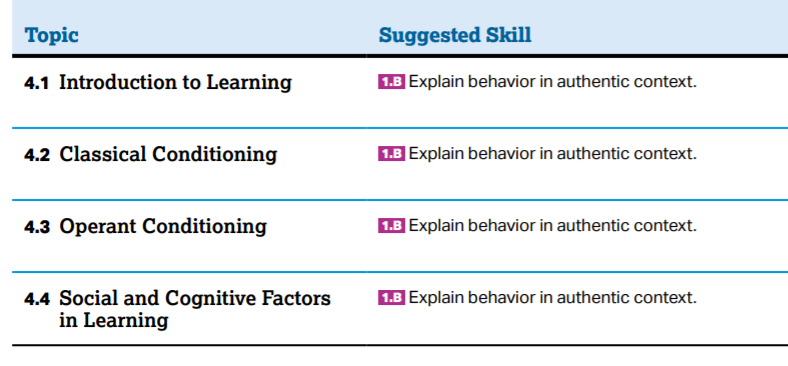AssignmentsHelpful LinksPresentationsVideos |
Unit 4: Learning
AP Exam Weighting: 7-9% Some psychologists focus their study on how humans and other animals learn and how some experiences can lead to changes in behavior and mental processes. Because the process of learning requires both physiological and psychological processes to work together, the two preceding units provide the foundation for this unit. Many psychologists who study learning focus on observable behaviors and how those behaviors can be changed or reinforced. Other learning psychologists study how the individual’s observations of other peoples’ behaviors influence changes in that individual’s mental processes and resulting behaviors. This unit integrates knowledge about physiological processes and psychological concepts from Units 2 and 3 within the context of learning processes. Major learning theories are introduced, as well as the experiments that were conducted to refine these theories. This increased understanding of research methods and design, first introduced in Unit 1, will reinforce the importance of valid and reliable research methods. This is a great place in the course to introduce case studies as a research method. This unit also gives students the opportunity to move from an understanding of the major theories to the research that was conducted to refine them and then to the data analysis involved in explaining the psychological phenomena. Preparing for the AP Exam: Classical and operant conditioning are learning methods that help explain behavior and mental processes. While these theories share many common attributes and involve similar processes, they are different, and they explain behavior and mental processes differently. Teachers can model these theories with examples that are accessible and interesting to help students recognize the differences and better understand how each theory explains behavior and mental processes. On the AP Exam, students often confuse classical and operant conditioning and describe the incorrect one. Students should be able to describe the principles of classical and/or operant conditioning and explain how they function to alter behavior and mental processes. |
